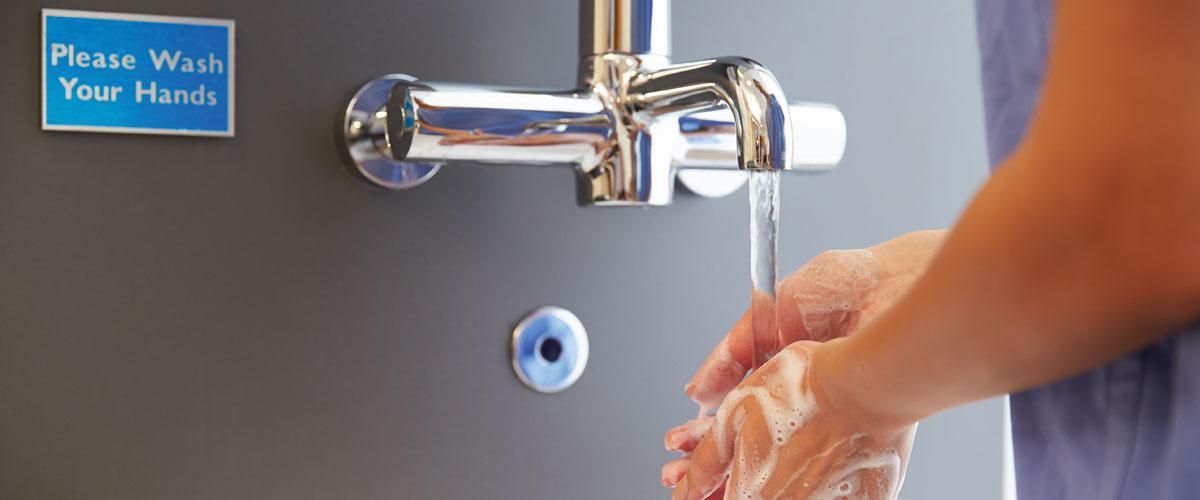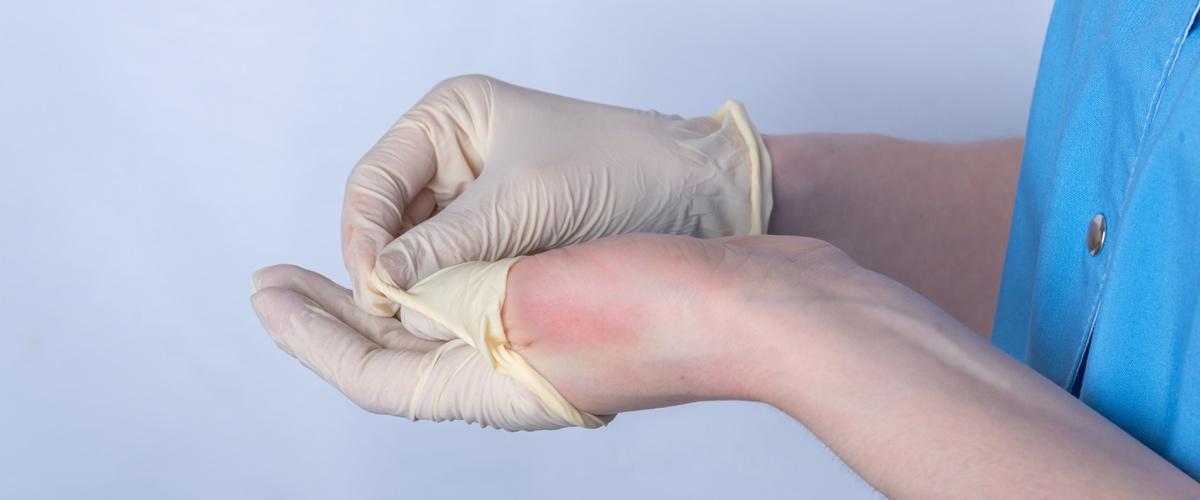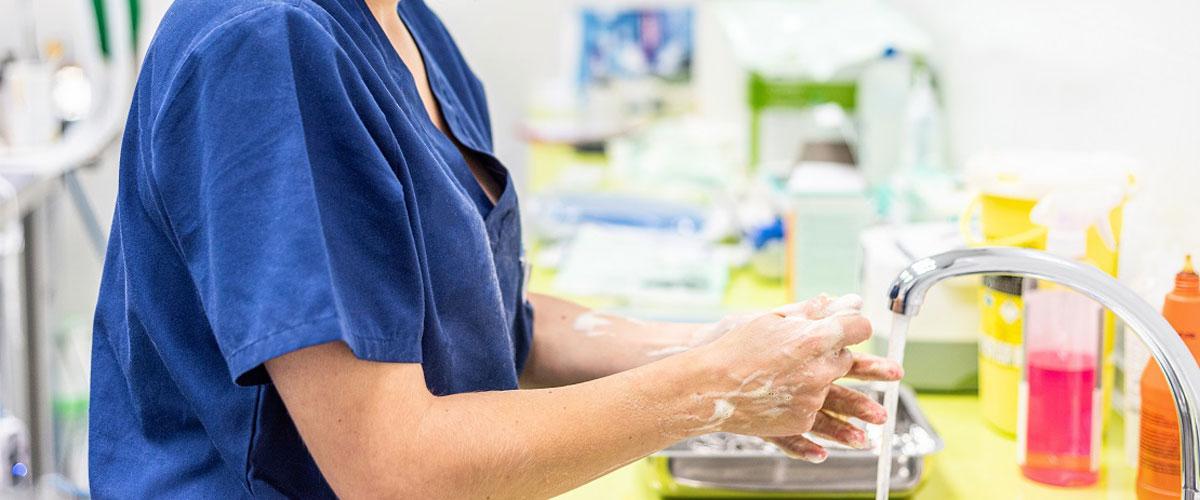When taking care of patients or residents, healthcare professionals must perform rigorous hand hygiene routines on a daily basis. And during COVID-19, local hand hygiene protocols have become even stricter. This is because hand hygiene and correct glove usage are the most important strategies to prevent healthcare-associated infections. Performing the right clinical hand washing and hand sanitisation steps, as well as donning and removing gloves in the right way, can minimise cross-contamination between patients and caregivers. By extension, it is possible to prevent healthcare-associated infections.
Why does hand hygiene compliance amongst healthcare workers matter? According to the European Centre for Disease Control, an estimated 8.9 million people acquire healthcare-associated infections each year in hospitals and long-term care facilities. However, more than half of these infections could be prevented.1
Hand hygiene considerations
As correct hand hygiene and glove use is a major contributor to the prevention of healthcare-associated infections, it is important that healthcare professionals are aware of (and apply) the following five hospital hand hygiene considerations:
- Understand how to perform hand hygiene, and which steps should be taken when washing hands.
- Understand when to perform hand hygiene when working with a patient to prevent cross-contamination.
- Be clear on when to wear gloves; next to infection prevention, this also decreases glove overuse while removing gloves at the appropriate time will decrease the chance of cross-contamination.
- Understand the techniques for glove donning and doffing to ensure the wearer has protection against infection and germ transmission.
- Choose the right glove size. Gloves that are too small will increase the chance of tearing, and because they can be harder to remove, may lead to germ flinging. On the other hand, oversized gloves may fall off or allow germs to get under the cuffs.
Normalising hand hygiene
In order to prevent healthcare-associated infections, hand hygiene must be strictly observed. However, based on research, healthcare workers apply hand hygiene correctly only about 34 per cent of the time.2 This means greater focus on compliance with hand hygiene protocols is key. The following points can help create rolling hand hygiene awareness in your healthcare institution:
- Accessibility – Hand hygiene products and gloves should be placed in easily accessible places. In addition, a higher level of compliance with protocols is achievable when healthcare professionals are included in the decision-making process of product selection.
- Developing a proactive skin care programme – Creating awareness is highly important for encouraging compliance. The skincare programme should, therefore, contain educational messages on correct hand washing techniques and glove use, for example. Pair this with audits to check hand hygiene adherence, as well as methods for engaging staff on observing hand hygiene protocols (e.g. presenting role models for hand hygiene practices or simulating worst-case scenarios).
- Patient engagement – Involving patients and their loved ones in hand hygiene will also likely create more accountability amongst healthcare professionals.
By paying close attention to hand hygiene protocols, and the rate of compliance, healthcare professionals will not only protect themselves, but also patients and their loved ones.


Jeanne Verheyden
Exam Gloves Division, Medline Europe
Jeanne is a recent graduate of Vrije Universiteit Amsterdam, and received her master’s degree just before joining Medline Europe as Junior Product Manager for exam gloves. Her educational background is in international business and business administration, and during her studies, she completed internships in Germany and the United Kingdom.
References:
1. ECDC. (2018, November 15). Publications & Data. Retrieved from European Antibiotic Awareness Day: https://antibiotic.ecdc.europa.eu/en/publications-data/healthcare-associated-infections-threat-patient-safety-europe
2. Kingston, L., O'Connell, N., & Dunne, C. (2016). Hand hygiene-related clinical trials reported since 2010: a systematic review. Journal of Hospital Infection, 92(4), 309-320.








